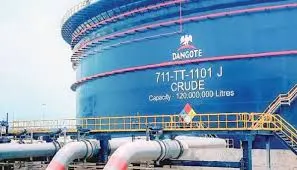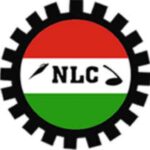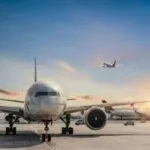Nigeria spent an average of N600 billion annually on petroleum products’ importation prior in the few years prior to the commencement of operation by the 650,000 per day capacity Dangote Refinery and Petrochemicals located at Free Zone, Lekki, Lagos, Group Chief Executive Officer, HSI Energies, Mr. Chikezie Nwosu, has said.
He stated that such an amount would have been saved with indigenous refining of petroleum products. He added that the Dangote refinery built at the cost of about $20billion and became operational last year had positively changed the narrative. Dangote refinery started the production of diesel and aviation fuel in January 2024 and petrol in September 2024.
He spoke to New Telegraph over the weekend. Nwosu said: “I do not know what the current import volumes are, but prior to Dangote, a lot of money was spent on importing petroleum products. An estimated N600 billion was spent annually on petroleum products importation and Nigeria could have saved that with local refining of petroleum products.
“If you look at the volumes that were reported to be imported, and the associated logistics costs and, if instead we relied on local refining capacity, then those are the kind of savings we would have been making, instead of subsidizing those who were importing the products. “The import volumes are probably significantly lower now, but I don’t have the actual numbers now.
It is however, right to say that prior to Dangote refinery’s resumption of operations, N600 billion was being spent annually on petroleum products importation by the federal government.” Nwosu who is also Group Chief Executive Officer, HSI Energies, stated that in an export only model for crude oil, Nigeria captures value exclusively at the upstream stage; once royalties, taxes, and lifting costs are deducted, a barrel sold free-on-board at $70-$90/ bbl yields a modest netback of approximately $17-20/ bbl, leaving the far larger margins embedded in refining, distribution, and retail to be realized rather than within the domestic economy.
He stated that retained downstream value insulated the naira – critical after the 38 per cent devaluation seen in 2024. According to him, subsidy removal in 2023 created a market reflective price regime, finally allowing local refiners to recover cost and earn margins. Talking on stranded barrels challenge, he stated that large volumes of producible crude remained locked behind brokers’ evacuation routes, invisible.
He stated that industry estimates indicate less than 300kbpd of marginal field crude sits ‘trapped’ behind vandalized or capacity-locked evacuation routes, equivalent to 11 per cent of Nigeria’s name plate output. According to him, tracking or barge evacuation raises lifting cost by $7-9/bbl and inflates insurers ESG risk premiums.
He added that many oil fields in the Niger-Delta operated at less than 60 per cent of name-plate capacity because export pipeline availability remain sporadic, even with recent improvements in reconciliation factors. He said that modular refineries could become national energy security assets.
According to him, deploying modular capacity close to the wellhead converts a point-offailure export system into a distributed, resilient network. He stated the Waltersmith Ibigwe 5kbpd plant, which was delivered while he was MD/CEO, delivered less than 90% nameplate capacity throughout from 2021 to 2023 and during the Trans-Niger pipeline outage due to a Force Majeure but still supplied over 200 million liters of petroleum products to the SouthEast market.
Noting the Petroleum Industry Act 2021 imperative, he stated that the Acts Domestic Crude Supply Obligation (DCSO) empowers regulators to support modular refining capacity as a strategic buffer against export disruption. He noted that a single force majeure on the crude oil export pipelines instantly removes hundreds of thousands of barrels of oil per day from the market, compromising both foreign exchange earnings and domestic supply resilience.
He stated that with an average export price of $73/bbl. Each day of disruptions on, for example the TNP, erodes roughly $22 million in gross receipts. Nwosu gave expert insight of exploratory and exploration activities, which are critical in achieving the production targets of over two million bopd and 15 billion standard cubic feet of gas per day that Nigeria urgently needs.
He said: “Now, one of the things we must be all aware of is that the process of even getting to commercialize hydrocarbons, which is both oil and gas, does not start from the wellhead. Before anybody talks about a hydrocarbon development and production, there are a lot of studies that are done.
As part of technical knowledge, when a basin is studied, there is a clear understanding that there should be hydrocarbons in this basin. But not only hydrocarbons, hydrocarbons that we can drill to confirm commerciality. Before you do any exploration drilling, seismic data (based on developed techniques using the property of sound waves) must be acquired.
“So just like when I speak in a room which has a wall, something like an echo can reflect off the wall. That’s exactly, in the simplest terms, how we carry out these seismic data acquisition and analysis to determine the presence of the right type of rocks and presence of hydrocarbons.
The estimates of those resources that we evaluate at that time are called prospective resources and not reserves.” He recalled that sometimes people say that Nigeria has 200 trillion standard cubic feet of reserves, and 600 trillion standard cubic feet of prospective resources. According to him, that means nobody has drilled that 600 trillion standard cubic feet and that it is the outcome of some regional basin analogues or studies.





